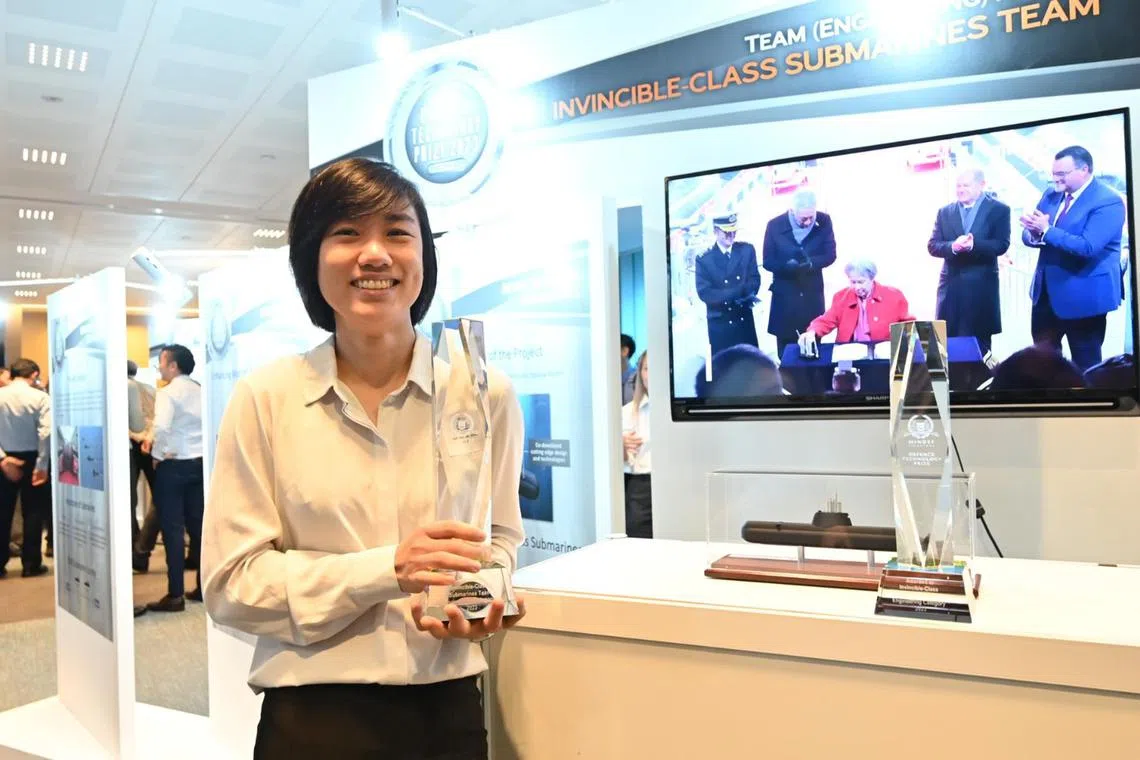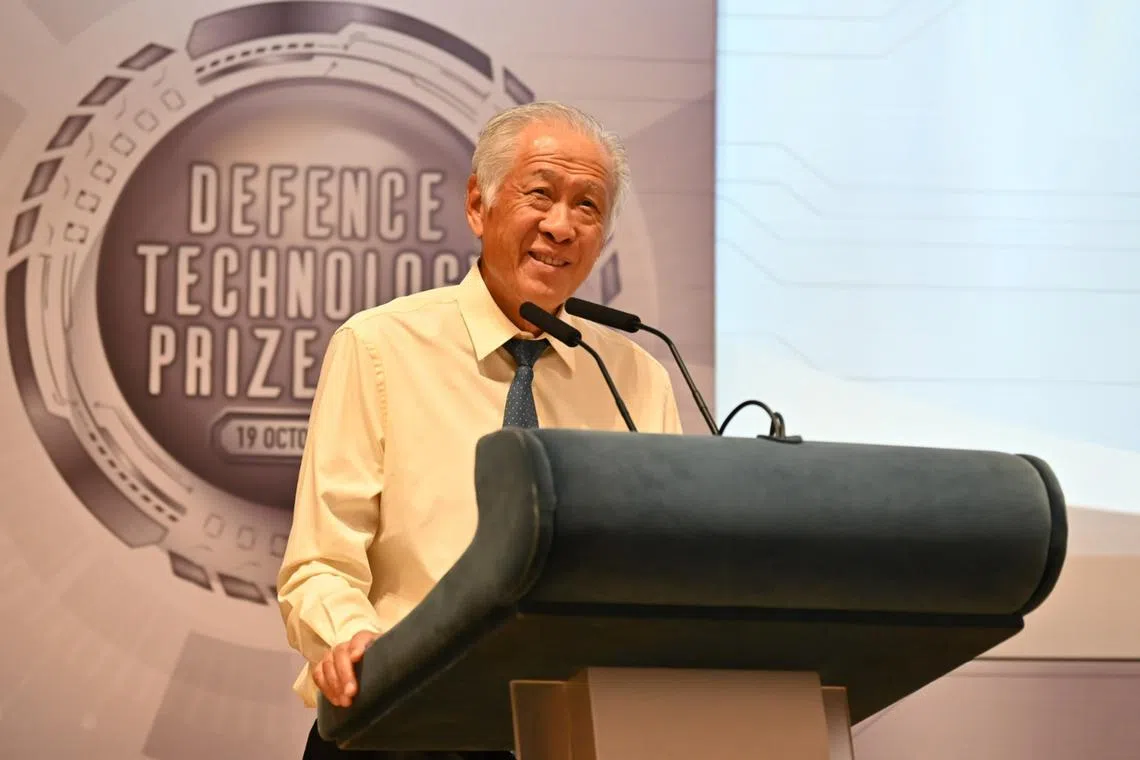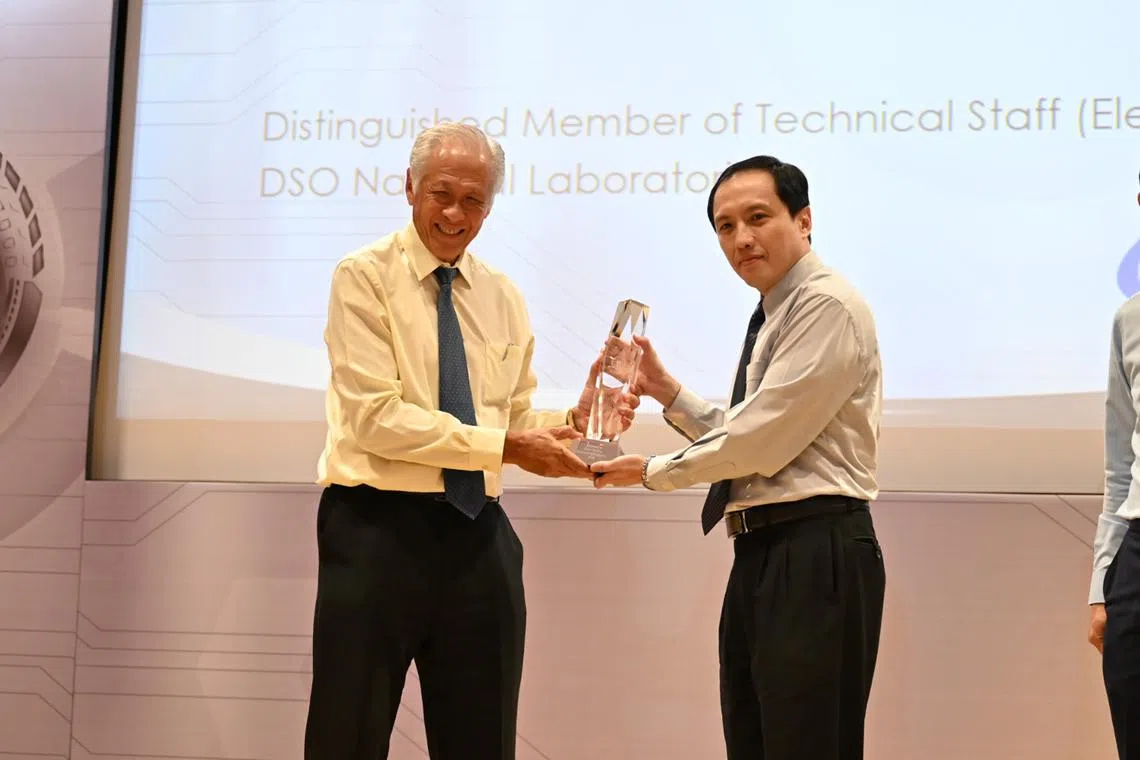Team behind S’pore’s first custom-built submarines wins defence technology prize
Sign up now: Get ST's newsletters delivered to your inbox

Ms Jovin Foo, a senior engineer from the Naval Systems Programme Centre at the Defence Science and Technology Agency, was part of a team that delivered Singapore’s first custom-built submarines.
PHOTO: MINDEF
Follow topic:
SINGAPORE – When the Republic of Singapore Navy (RSN) was about to retire its existing 40-year-old submarines, it had to ensure that the new submarines being brought in from Germany were able to perform in Singapore waters and were effectively customised to suit the RSN’s unique needs.
Ms Jovin Foo, 28, a senior engineer from the Naval Systems Programme Centre at the Defence Science and Technology Agency (DSTA), has spent four years on this project alongside others from DSTA, RSN and the DSO National Laboratories (DSO).
For delivering Singapore’s first custom-built submarines, the team was among six individual and team award winners of this year’s Defence Technology Prize (DTP).
Established in 1989, the prize is awarded annually to individuals and teams that have made significant technological contributions to Singapore’s defence capabilities.
Ms Foo said that the German shipbuilder’s submarine designs catered to taller Caucasian physiques.
The team needed to optimise the ergonomics of the design to suit the shorter Asian physiques of RSN personnel who would man the new submarine.
“With the original design, when the Asian crew want to operate the original valves or adjust any settings, they may have to reach further out,” she said. “So customising the submarine could also help prevent workplace injury.”
Minister for Defence Ng Eng Hen presented the DTP to two individuals and four teams at a ceremony on Thursday at the DSO auditorium in Science Park Drive.
Apart from being customised to suit Asian physiques, the new submarines have been equipped to operate in Singapore’s warm, shallow, noisy and crowded waters.
These technological advancements allow the submarines to see farther and act faster.
In his speech at the ceremony, Dr Ng said that despite Singapore’s limited manpower and proximity to potential aggressors, the Singapore Armed Forces (SAF) today has far greater capabilities in air, land, sea and digital domains.
“The modernised SAF of today has been propelled to the front ranks by the adoption of new technologies,” he said, adding that this transformation would not have been possible without the close partnership with those in the Defence Technology Community (DTC).
Dr Ng cited the ongoing Russia-Ukraine war
“This iteration between new technology and disruption creates endless cycles,” he said.

Defence Minister Ng Eng Hen speaking at the award ceremony on Thursday.
PHOTO: MINDEF
His point was reiterated by Mr Chan Su Wee, 51, one of the individual prize winners, who spearheaded the design and development of electronic warfare (EW) systems for the SAF.
Mr Chan, a Distinguished Member of Technical Staff of the Electronic Systems Division at the DSO National Laboratories, has been working on building up Singapore’s capabilities of EW systems for the past 17 years.
“EW is still a closely guarded secret. Nobody will sell you their most capable systems. Nobody will teach you their most advanced methods,” said Mr Chan.

Defence Minister Ng Eng Hen presenting Mr Chan Su Wee with the Defence Technology Prize 2023 Individual Award for spearheading the design and development of electronic warfare systems for the SAF.
PHOTO: MINDEF
He noted that in the ongoing Russia-Ukraine war, Ukrainian EW systems were able to detect signals from all kinds of Russian weapons to reveal their origins.
These coordinates were then passed on to other units for them to destroy Russian targets.
Mr Chan said electronic warfare involves a continuous effort to stay ahead of potential threats.
“We cannot sit on our hands. When something happens, it will be too late, as it takes a very long time to develop solutions. So we cannot take things for granted,” he said.
Dr Ng also spoke about the emerging use of artificial intelligence in militaries around the world, noting that such technologies have great potential.
Even so, the Ministry of Defence and the SAF have decided that greater oversight is necessary as not all problems need AI solutions, he said, adding that solutions should be cost-effective.
“The promise of AI is indeed great but in this evolving space, while there can be great gains in its application, there is also the risk that resources could be consumed chasing many rainbows.”


